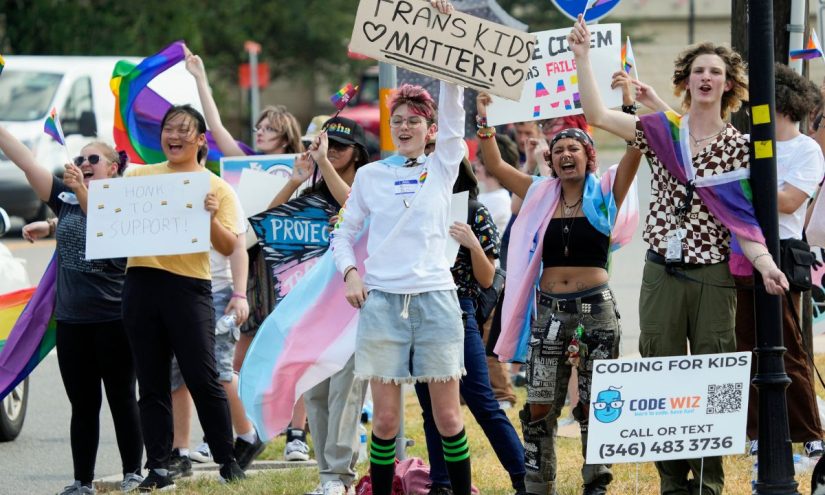Get stories like this delivered straight to your inbox. Sign up for The 74 Newsletter
Correction and clarification appended Feb. 21
Organizations supporting LGBTQ students and their teachers in schools saw increases in both their workloads and donations after President Donald Trump’s first election and the recent avalanche of anti-LGBTQ bills moving through state legislatures. Since Trump’s second election, however, there has been a tectonic shift in the landscape.
LGBTQ advocacy groups, including the top youth-serving organizations, say they have seen their funding decline. They fear this will accelerate even further in reaction to executive orders targeting “DEI” — diversity, equity and inclusion efforts — which may or may not be legal.
Target, Google and Amazon are examples of corporate backers that have supported LGBTQ student advocacy but recently removed references to “DEI” from public documents or announced they are rolling back inclusion policies.
Meanwhile, needs are mushrooming. The Trevor Project saw a 700% increase in the number of calls to its suicide-prevention hotline the day after the November election. Now, layoffs are likely as part of a restructuring intended in part to dedicate more resources to crisis intervention programs, CEO Jaymes Black announced.
The Human Rights Campaign, which offers bullying prevention training, is set to lay off about 20% of its employees. In a statement to the LGBTQ news outlet The Advocate, the organization’s leaders said they hoped the “reset” would allow them to make schools a primary area of focus.
GLSEN, which provides a range of resources for schools working to be inclusive, has laid off 18 people.
“In comparison to the outpouring of support for nonprofits in response to the first Trump administration, there is a significant difference here,” says Brian Dittmeier, GLSEN’s director of public policy. “We are dealing with a really targeted attack on the community. There are over 2 million LGBTQ students in the country, over 300,000 transgender students in tens of thousands of school districts that benefit from this support. There is a significant need there that will be unmet.”
Because until recently few government agencies collected data on queer youth, these three nonprofits have conducted much of the existing longitudinal research on LGBTQ students and used it to identify settings and policies that determine school safety for gender and sexual minority students and teachers. Among other things, they have established the positive academic impact of welcoming classrooms.
The organizations also provide resources directly to students and educators. They must now figure out whether they can continue collecting and analyzing that data while focusing on direct services.
“We were built to build the evidence base for interventions and policy changes, which could then be incorporated into a functioning civil rights regime and education system,” explains Eliza Byard, an education consultant and the former executive director of GLSEN. “At the same time, thanks to a change in culture and the work of many, many years by these organizations, the number of young people who are ‘out’ and seeking services, community and support has grown exponentially.”
As a result, she adds, “the job is enormous in a way that it wasn’t previously.”
The Obama and Biden administrations began including information on LGBTQ students in numerous federal datasets — efforts targeted by Trump. This makes it especially important that longitudinal research by the advocacy organizations continue, says Dittmeier.
He says he expects the organization’s 2024 school climate survey — a detailed, biennial report that’s the cornerstone of GLSEN’s research — to be released on schedule in the coming weeks and to be a priority going forward.
“One of the pieces here is we know that the solutions — what works — is not going to come from Washington,” he says. “The solutions are going to come from communities. So as we have always done in our more than three decades’ history, we are going to continue to rely on what we’re hearing both in our larger-scale research projects but also in direct engagement with educators and students on the ground.”
Correction: Eliza Byard is an education consultant and the former executive director of GLSEN.
Clarification: After The 74 published a reported number of layoffs at GLSEN, the organization emailed to clarify that the actual number is 18.
Disclosure: The Chan Zuckerberg Initiative and the Charles and Lynn Schusterman Family Philanthropies provide financial support to The Trevor Project and The 74.
Get stories like these delivered straight to your inbox. Sign up for The 74 Newsletter







